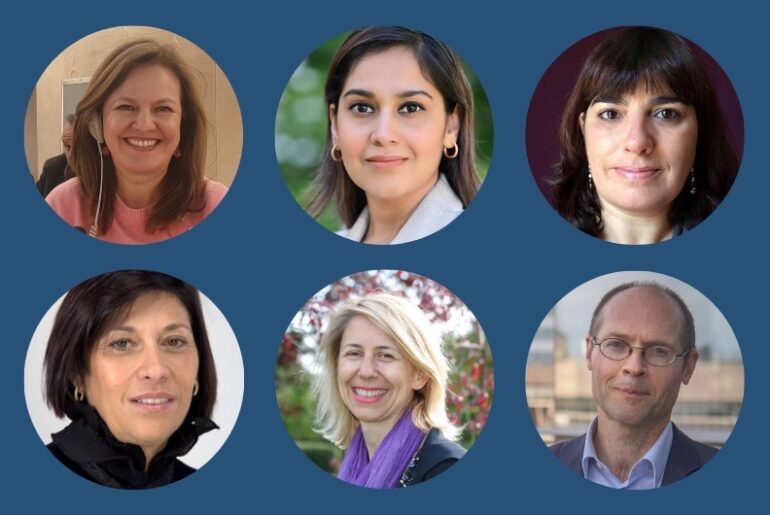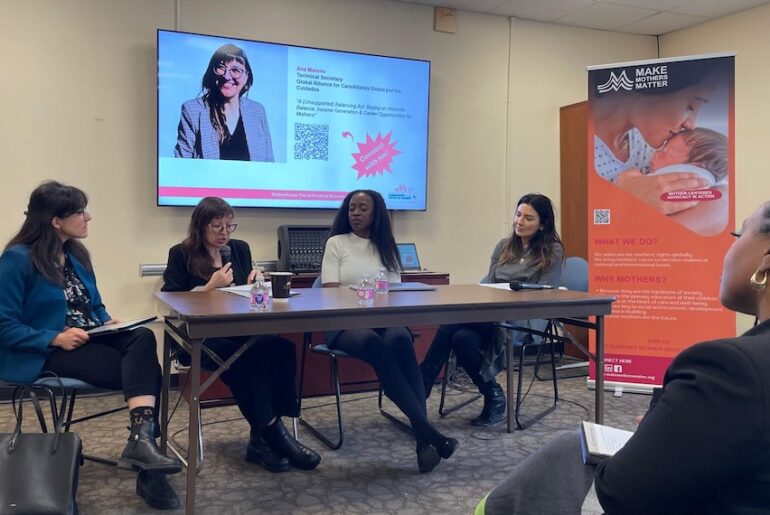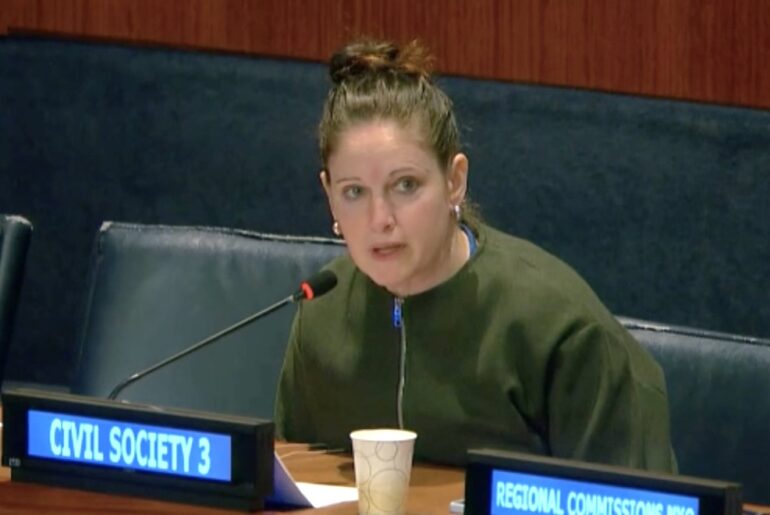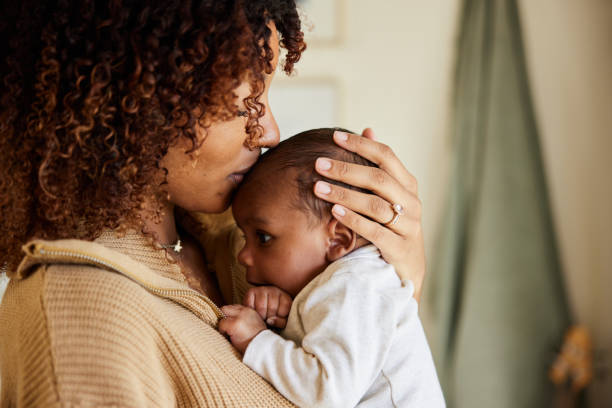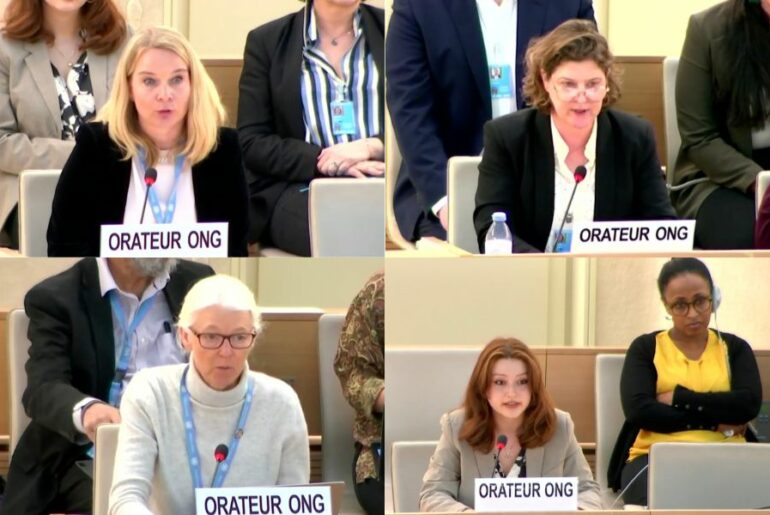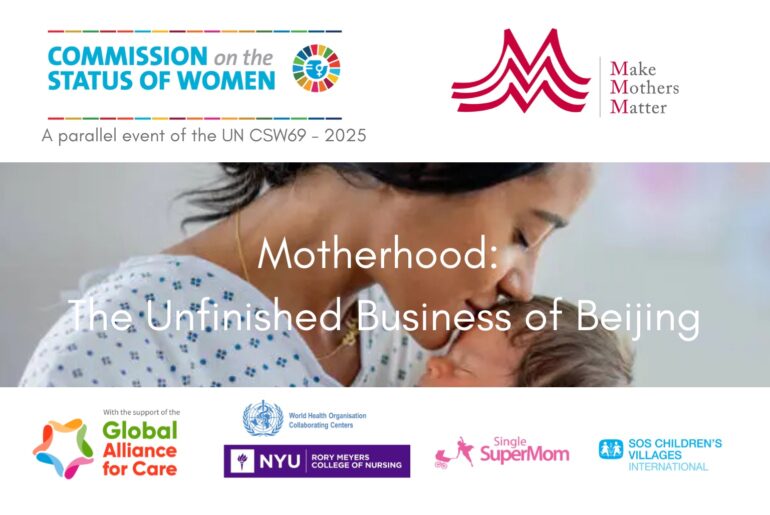Leave no mother behind: empowered mothers are change makers who can make the SDGs succeed
06.11.18
UN Geneva, Forum on Women's Economic, Social and Cultural Rights - Invited to speak in the session on the role of women in achieving the Sustainable Development Goals (SDGs), MMM highlighted how mothers could not only benefit but also greatly contribute to the 2030 agenda, especially on SDG 1, 2 3, 4, 5 and 16.
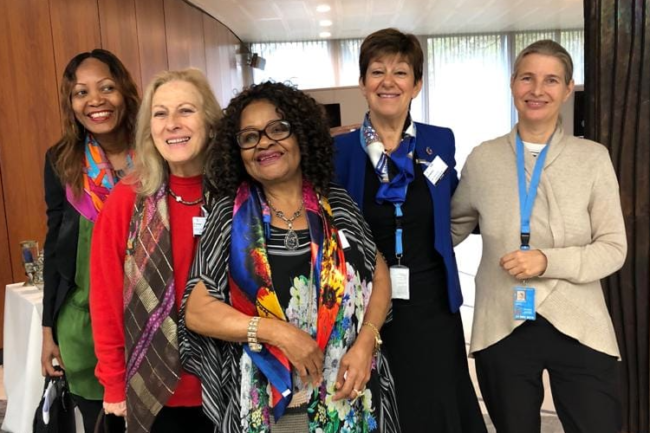
For women around the world, the 2030 agenda and its 17 SDGs bring high hopes for a better future, for them, as well as for their children.
At the same time, MMM is convinced that women, in their role as mothers, can have wide-ranging positive impacts on the realization of this agenda, cutting across most if not all the SDGs:
- Because mothers are – together with fathers and other family members – the first educators of their children, the future citizens.
- Because of their multiple roles in the family and in society – whether in the economic, social or political spheres
- Because they all share the same and long-term concern of leaving a better world to their children.
Goal 1 and 5: Women’s poverty and the unequal distribution of unpaid family care work are intrinsically linked
Addressing the unequal distribution of unpaid care work responsibilities and empowering mothers is key to breaking the circle of poverty – and to the realization of goals 1 and 5
Goal 2 Rural women make major contributions to the agricultural and rural economies – they are also often engaged in unpaid subsistence farming and thus provide a huge amount of time and energy in ensuring food security and nutrition to their family. Yet in their role as farmers, rural women remain discriminated in terms of access to land, credit, and other productive resources such as access to seeds, fertilizers, information, training, etc.
Public policies, notably those supporting public infrastructure and services, should aim at supporting rural women in their multiple roles as household managers and caregivers, food producers and marketers, not to mention their role in nature conservation and climate adaptation.
Goal 3: Healthy mothers can ensure healthy lives for their children
Prioritizing and investing in maternal and child health will allow educated and supported mothers to be change makers for their children’s long term health, and even for their own and other mothers’ health.
Goal 4: Education is key to development. Educated girls especially will become empowered mothers who in turn will have positive impacts on their families, their communities and societies. They are the change makers of our future.
“Change the world for girls, so that girls can change the world”
Goal 16 Peace begins in the home! Enabling children to grow up in healthy, violence-free families, and thus enabling them to reach their full potential and to find their role in society, is the foundation of lasting peace.
The intergenerational perpetuation of violence against women must be stopped and mothers empowered as agents of peace
Mothers are change makers – if only they are adequately recognized, supported, empowered and involved as such.
The 10th International NGO Forum on the Economic Social and Cultural Rights of Women was organized by OCAPROCE International and the Permanent Mission of the Kingdom of Morocco on 5 November 2018 at the World Intellectual Property Organisation (WIPO).
The representative of MMM also acted as Rapporteur: at the end of the forum, she presented a synthesis of the recommendations which were made by the various speakers during the Forum.
Mothers, unpaid care work and global crises – connecting the dots
02.07.24
UN New York / HLPF - Register now to join us online at this year’s High Level Political Forum side-event.
Time Poverty and the Motherhood Penalty
Unveiling Economic and Social Injustices
09.07.24
Mothers play an essential role in families by ensuring their loved ones are nourished, educated, and healthy, but their unpaid care work often leads to economic and social injustices, known
Envisioning care as a common thread to global crises
29.07.24
UN New York - Our virtual HLPF side-event brought together experts to shed light on how the various global crises we face (in particular climate change and other environmental crises,
